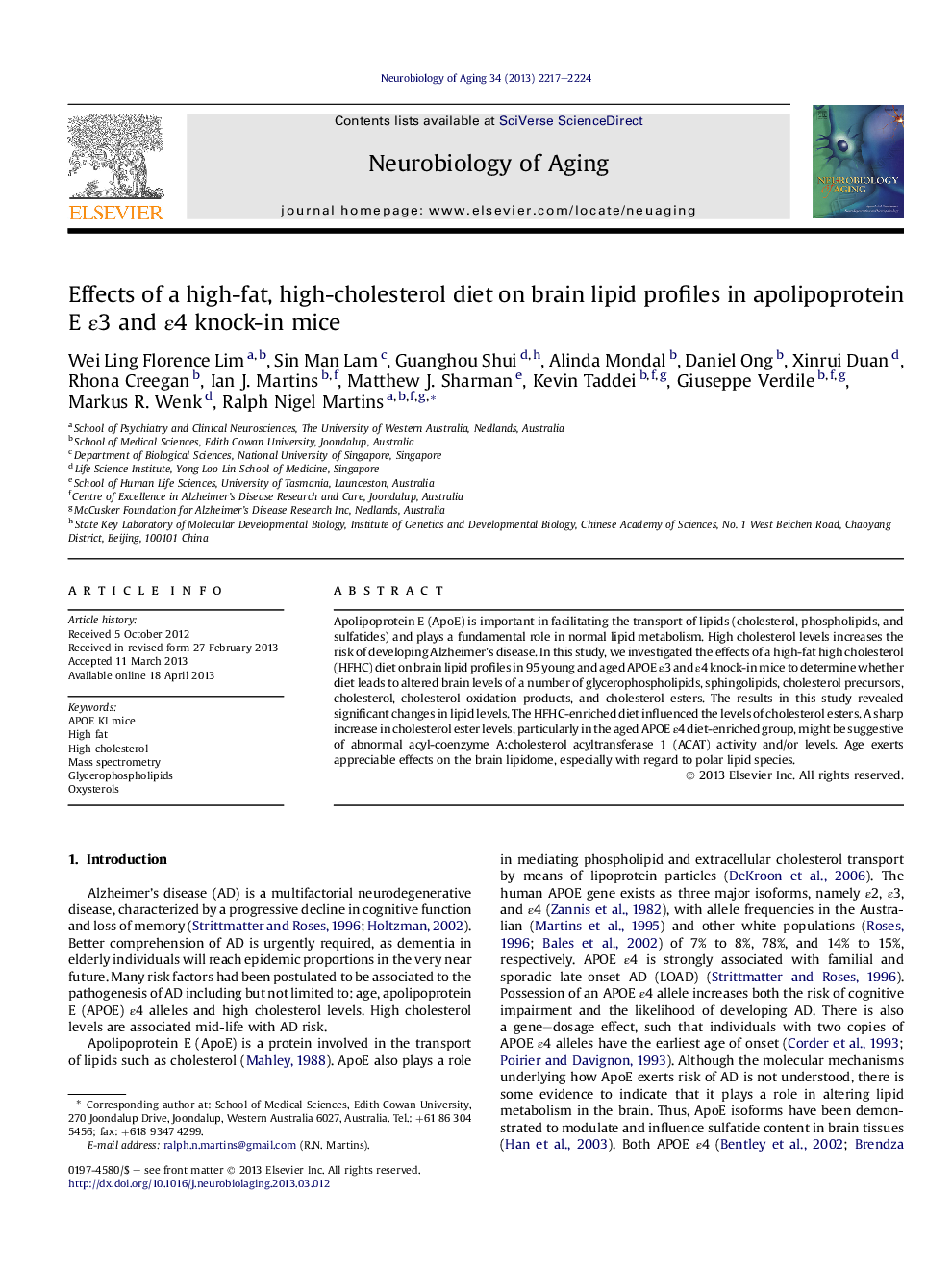| Article ID | Journal | Published Year | Pages | File Type |
|---|---|---|---|---|
| 6807139 | Neurobiology of Aging | 2013 | 8 Pages |
Abstract
Apolipoprotein E (ApoE) is important in facilitating the transport of lipids (cholesterol, phospholipids, and sulfatides) and plays a fundamental role in normal lipid metabolism. High cholesterol levels increases the risk of developing Alzheimer's disease. In this study, we investigated the effects of a high-fat high cholesterol (HFHC) diet on brain lipid profiles in 95 young and aged APOE É3 and É4 knock-in mice to determine whether diet leads to altered brain levels of a number of glycerophospholipids, sphingolipids, cholesterol precursors, cholesterol, cholesterol oxidation products, and cholesterol esters. The results in this study revealed significant changes in lipid levels. The HFHC-enriched diet influenced the levels of cholesterol esters. A sharp increase in cholesterol ester levels, particularly in the aged APOE É4 diet-enriched group, might be suggestive of abnormal acyl-coenzyme A:cholesterol acyltransferase 1 (ACAT) activity and/or levels. Age exerts appreciable effects on the brain lipidome, especially with regard to polar lipid species.
Related Topics
Life Sciences
Biochemistry, Genetics and Molecular Biology
Ageing
Authors
Wei Ling Florence Lim, Sin Man Lam, Guanghou Shui, Alinda Mondal, Daniel Ong, Xinrui Duan, Rhona Creegan, Ian J. Martins, Matthew J. Sharman, Kevin Taddei, Giuseppe Verdile, Markus R. Wenk, Ralph Nigel Martins,
